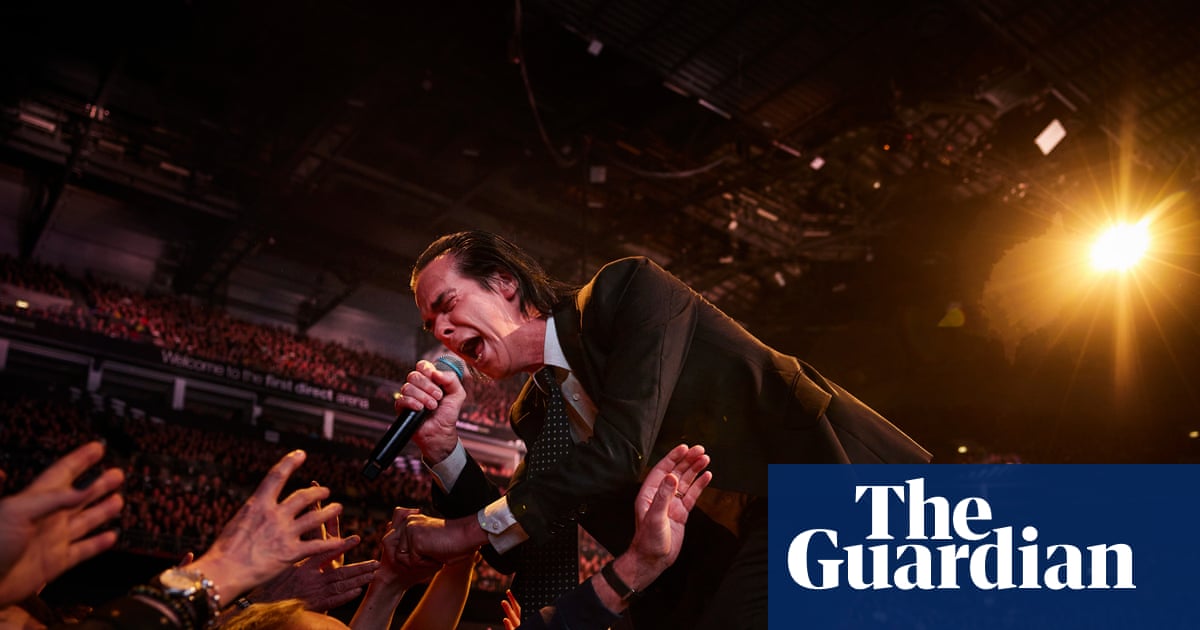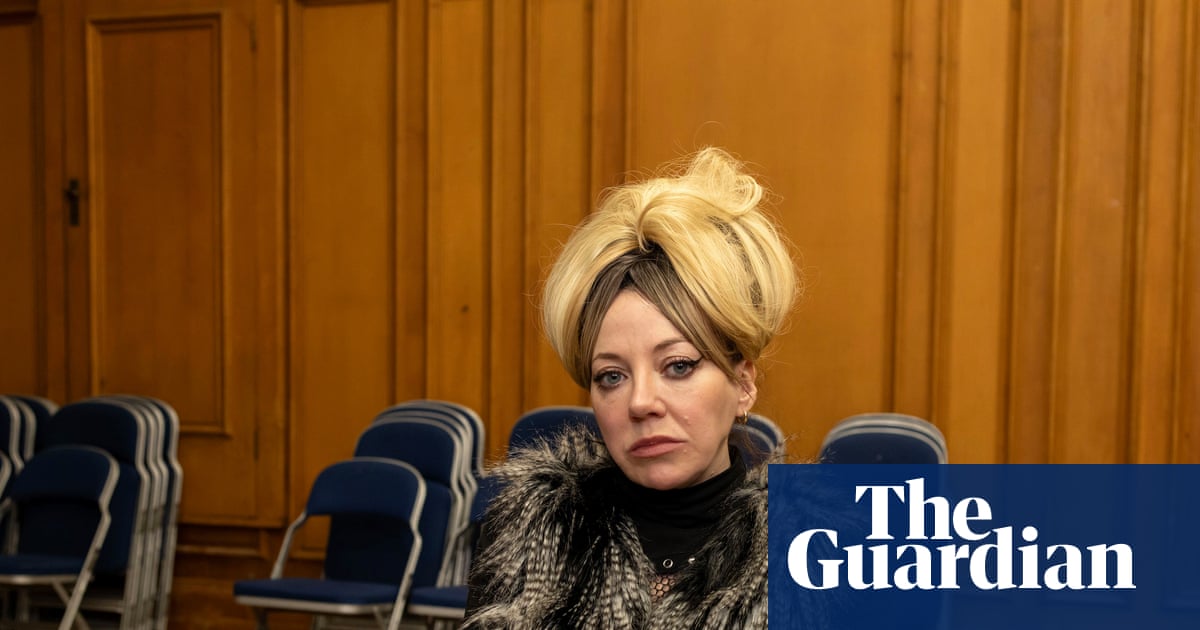There is an overwhelming darkness to The Narrow Road to the Deep North, Justin Kurzel’s adaptation of Richard Flanagan’s Booker prize-winning novel. Thematically, this is to be expected: it is about a group of Australian prisoners of war constructing the Burma railway in the mid-1940s, at the tail end of the second world war. It is about the lasting trauma of conflict and imprisonment. It spans half a century, and though it tempers its darkness with a rich love story, it is largely violent, fatalistic and sorrowful. But visually, too, you may find yourself fiddling with the contrast and brightness settings. This very much matches its mood to its palette.
Jacob Elordi is perfectly handsome and haunted as the younger Dorrigo, a poetry-loving doctor who is about to be married to the well-to-do and socially connected Ella (Olivia DeJonge). The show covers three timelines, two of which follow closely on from one another. Elordi takes the main shift, Dorrigo as a young man. It opens in the thick heat of battle, going straight into the action. Young soldiers trade barbs with gallows humour, as they joke and tease, and place bets on how long they think they are going to live. Their banter is interrupted by exploding mines, the casualties already considerable, just a few moments in. The survivors are captured and put to work on the railway. It is hellish from the off, a vivid nightmare of torture and a tale of impossible endurance.
Forty-nine years later, towards the end of the 1980s, Ciarán Hinds is the older Dorrigo, a successful, wealthy and celebrated surgeon, still married to Ella (now played by Heather Mitchell). Dorrigo is brooding, even more haunted and undergoing a reckoning with his own history. He is also celebrated as a war hero, but he is combative, arrogant, even reckless, in his professional and personal life. He gives a furious television interview, ostensibly about his experiences of war, to promote a book, the nature of which is deliberately abstruse. This enforced reflection causes him to remember what he has tried so hard to forget and, as a drama, flipping between timelines, it builds up a picture of what made him the unhappy, unfaithful man he has become. It does this slowly, convincingly and in great, awful detail.
The 1980s storyline, in which Dorrigo’s philandering ways are laid bare, provides some respite from the relentless violence. This is visceral, in its truest sense. Kurzel captures the bodily horror of war in an almost confrontationally frank manner. As they hack away at rock and trees, the men are emaciated, filthy, full of malaria and dysentery. The camera nestles in among them, and hovers above, conveying a real sense of their closeness and suffering. At one point, a leg must be amputated. This is a gory and drawn-out ordeal. At least, in the darkness, it is partially obscured, though the audio alone is gruesome enough.
For all of its bodily horrors, this is a passionate, full-bodied love story too, a strand that is delicately balanced but just as impactful. Before he is called up, Dorrigo visits his uncle Keith (a small, mighty performance from Simon Baker) and is immediately drawn to Keith’s young wife, Amy (Odessa Young). She is intrigued, if not impressed, but when they meet again at a poetry reading in a bookshop, after Dorrigo has become engaged to Ella, that initial spark ignites into a forest fire. It takes time for their mutual attraction to become more than yearning and longing, lingering looks and touches, but the pacing of it is moving and affecting. Compared to the grinding chaos of the jungle, their affair is sad and beautiful, as romantic as it is doomed.
This is a literary drama and it makes no apologies for that. Dorrigo loves Catullus and Aeschylus. The men perform Romeo and Juliet for each other in the jungle. Amy cements her attraction to Dorrigo with a fragment of Sappho, which reads, simply, “you burn me”. At times, its novelistic roots are more obviously on show; some of the dialogue is writerly and elevated, as the characters reflect poetically upon human nature and cruelty.
And there is much cruelty to consider. There are so many killings, so many deaths, and one particular execution, in the jungle, is one of the most distressing scenes I have watched on television in a long time. The Narrow Road to the Deep North, then, is not an easy prospect, but it is an immensely powerful one, driven by strong performances and a bracing confidence in its ability to tell this story, at its own pace, in its own way. My only complaint is that I would have liked to have been able to see just a little more of it.

 13 hours ago
3
13 hours ago
3










 English (US)
English (US)